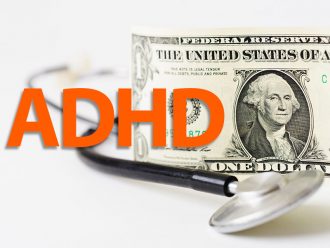

| Online: | |
| Visits: | |
| Stories: |

| Story Views | |
| Now: | |
| Last Hour: | |
| Last 24 Hours: | |
| Total: | |
The ADHD Phenomenon: Is It a Scam?
Follow TIS on Twitter: @Truth_is_Scary & Like TIS of Facebook- facebook.com/TruthisScary

Nicolas Kilsdonk/Wake Up World
As someone diagnosed with ADHD, I believe the whole thing is a scam.
As far as I recall, I have always been extremely hyperactive. The most striking example is me, 22 months old, constantly riding my tricycle in the house. I used to manage my level of energy pretty well, but after entering school, my liberty to do so became increasingly restricted. Balancing my level of activity with the demands of expectation then became a major struggle.
I have spent most of my psychology degree studies investigating the causes of ADHD. I have the benefit of insight into both the body of research available and the mind of someone who is said to have ADHD. I’m 24 years old now, and it’s still impossible for me to sit for the length of a movie. But at least now I know why. I don’t have a disorder. In fact my readings and experience have both led me to a single conclusion: the concept of ADHD is nothing but a scam. A hoax, perpetuated by Big Pharma and the psychiatric industry.
ADHD has no distinguishable brain abnormality.
This is the main reason why ADHD is a scam: the legitimizing factor is a total lie. No neurological abnormality has been found in people with ADHD. While farcical “scientific” figures have plagued social media, supposedly showing “the ADHD brain”, neuroscientists remain unable to identify ADHD with a brain scan. The popularity of the notion of a chemically imbalanced brain in people with ADHD serves to legitimize the cult of the chemically imbalanced brain. However, the brain of people with ADHD doesn’t legitimize anything, because there is no unifying neurological factor in people with ADHD.
There are no standards of “good” and “bad” brain chemistry or structure that can distinguish between normal controls and any psychiatric illness. Just as neuroscientists have no idea why people with ADHD respond so inconsistently to various types of medication, they are also completely unable to identify the neural bases of ADHD. The fact that psychoactive drugs can reduce hyperactivity doesn’t mean that it corrects a chemical imbalance, it just creates a new one, much like alcohol and shyness.
“None of the techniques reveal causal factors pertaining to the physiological underpinnings of ADHD; rather, the studies are relational in nature. These technologies currently lack adequate specificity and sensitivity for psychiatric conditions and therefore should not be used for informing clinical practice”. — Weyandt, Swentosky, & Godmundsdottir, 2013
The fact that ADHD has no biological marker doesn’t mean that the symptoms are imaginary, or that they aren’t debilitating. It means that the ADHD brain has not shown to be abnormal. Therefore, any policy or practice about ADHD shouldn’t pertain to assumptions about a globally dysfunctional brain. Just the behavioral maladjustment and its contextual boundaries.
This reasoning doesn’t only apply to ADHD, however. In fact, schizophrenia, Alzheimer’s, or bipolar disorder can’t be identified by brain scans either. What is unique to ADHD, however, is that its symptoms of clinical severity radically vary from one context to another, within seconds.
ADHD symptoms are not universally impairing
The concept of hyperactivity takes its meaning in relation to the environment. The level of activity (or arousal) of a certain organism depends on the surrounding stimuli. Those with ADHD are consistently under-aroused, and are constantly seek excitement and novelty. This explains why the symptoms of ADHD are mainly emerging at work, or in class. People with ADHD can play video games for hours, yet struggle concentrating on work or chores for just a few minutes. It also explains why people with ADHD can make some very bad decisions—they don’t feel as impacted by consequences.
Source: http://truthisscary.com/2016/11/the-adhd-phenomenon-is-it-a-scam/


